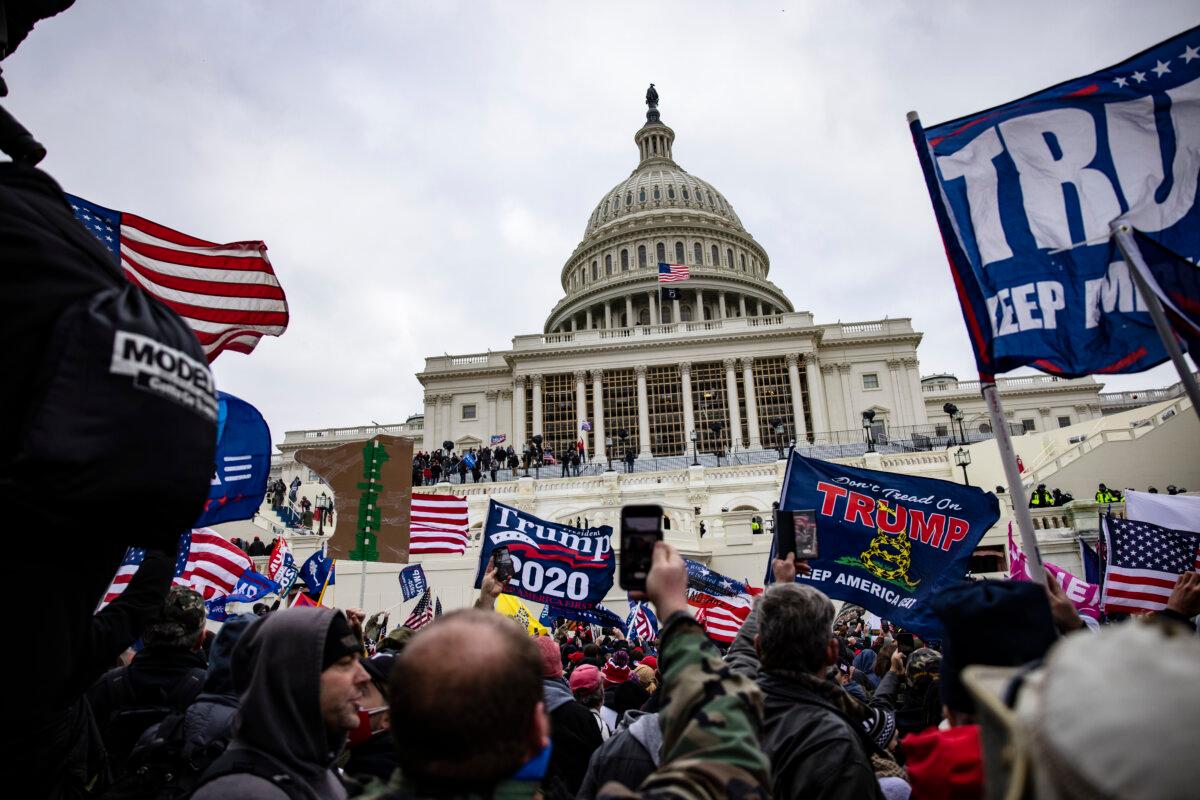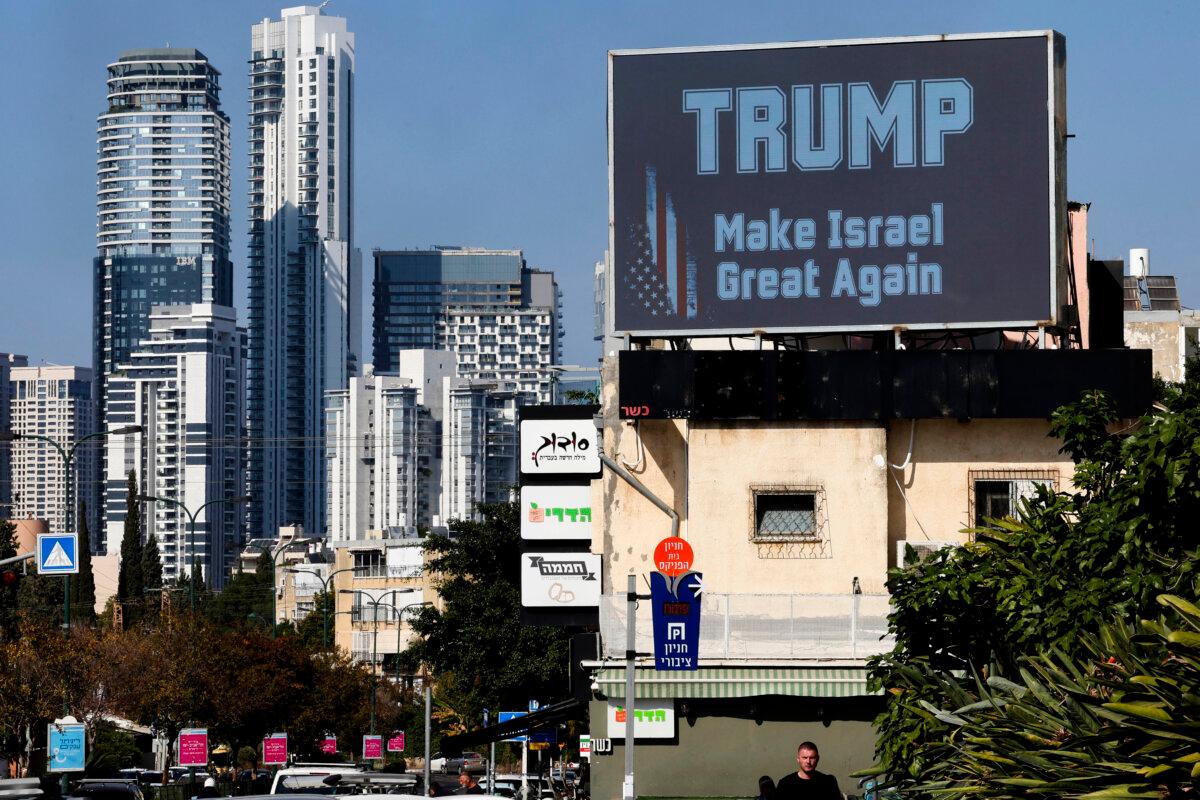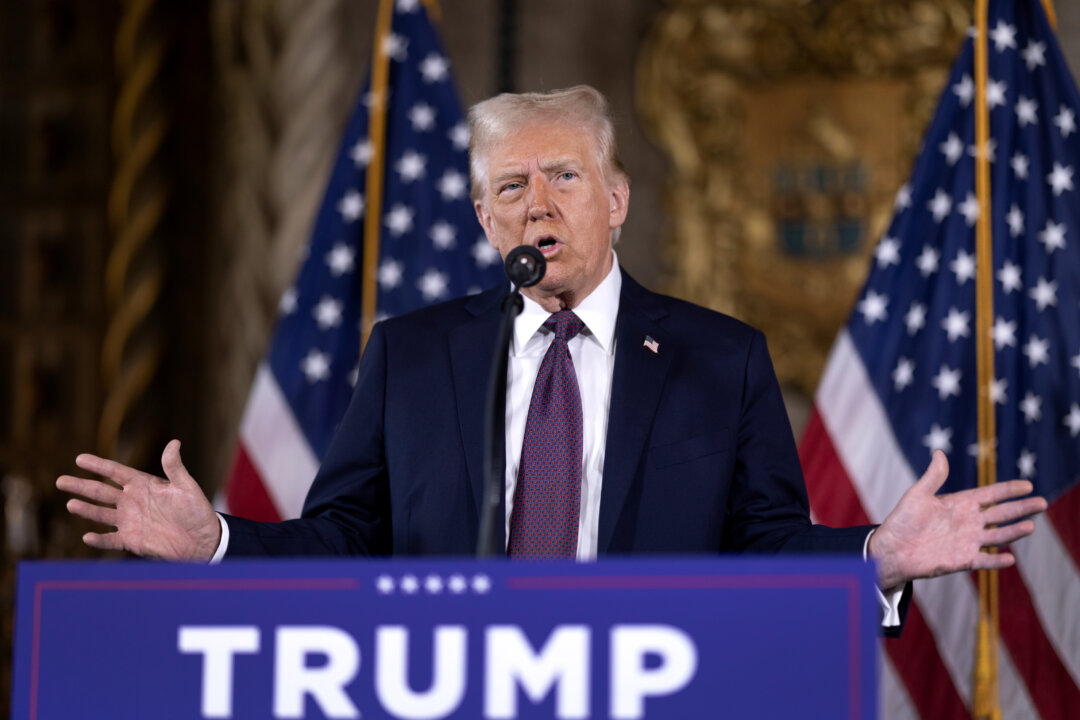Trump may act fast on the border, energy, electric vehicles, Jan. 6 pardons, DEI, ‘wokeness’ in education, Ukraine, China, the economy, and much more.
WASHINGTON—President-elect Donald Trump will issue a flurry of executive orders right after being sworn in on Monday.
Stephen Miller, Trump’s immigration advisor, reportedly outlined some of Trump’s prospective measures in a meeting with Senate Republicans earlier this month. On his first day, the Trump White House could issue over 100 executive orders, with a particular focus on the border.
Those first few hours and the days to come could see an unprecedented surge of ambitious executive actions, ranging from reversals of Biden-era border policies to an order against online censorship.
Alongside executive orders, his earliest moves will likely include memoranda, proclamations, pardons, and even diplomacy aimed at stabilizing a chaotic world order.
Observers can expect pushback from Democrats as well as judicial challenges and other hiccups.
Here’s what you should anticipate on day one and in those that follow.
Immigration and the Border
The state of America’s border was a key talking point for Trump while campaigning.
Once in the White House, Trump could quickly reenact many of the immigration- and border-related executive orders from his first term. President Joe Biden rolled back his predecessor’s immigration policies soon after taking office in 2021.
Trump is expected to reinstate the requirement that asylum seekers stay south of the border ahead of their immigration court date—a policy known as “Remain in Mexico.”
He could also end “catch and release.”
In addition, he may restore Title 42, a pandemic-era restriction that Biden ended. He could also quickly move to finish building a wall along the southern border and to fund new detention facilities, necessary given the scope of deportations he plans.
The mass deportation process could start slowly, with an initial focus on illegal immigrants who have criminal records and active deportation orders.
Trump has also promised a day-one executive order to curtail birthright citizenship for the children of illegal immigrants born on U.S. soil. That executive action would also seek to end “birth tourism.” Under the current law, many pregnant foreigners can and do briefly visit the United States so their children are born within its borders, thereby entitling them to birthright citizenship.

In addition, Trump will likely push for immigration enforcement in “sanctuary cities,” jurisdictions that restrict cooperation with federal immigration authorities.
Incoming border czar Tom Homan has said the administration’s efforts will start in one of the country’s biggest sanctuary cities, Chicago.
Energy and EVs
During his successful presidential run, Trump vowed to “drill, baby, drill,” and make the U.S. energy dominant.
Once in office, he could target Biden’s 2021 executive order “on tackling the climate crisis at home and abroad.” Relatedly, he may again withdraw the United States from the Paris Agreement or other international agreements pertaining to climate change.
In addition, Trump will likely seek to undo Biden-era restrictions on drilling on federal lands and waters. He could also end Biden’s pause on liquefied natural gas exports.
Trump may also seek to undo the Biden administration’s electric vehicle agenda.
More specifically, he is expected to target recent automotive regulations from the Environmental Protection Agency (EPA), which he has characterized as a mandate for electric vehicles.
Under the Clean Air Act, California is free to create its own emissions standards—and many other states follow its lead. The EPA recently greenlit the state’s latest requests, which would see it ban gas-powered cars within a decade. Trump could challenge the Golden State’s independence in regulating emissions.
Jan. 6 Pardons
Trump and Vice President-elect JD Vance have discussed pardons for non-violent participants in the Jan. 6, 2021, protests and breach of the U.S. Capitol in Washington.
To date, there have been over 1,500 arrests connected to the events of Jan. 6.
“If they were non-violent, I think they’ve been greatly punished,” Trump said during a December 2024 interview with Time Magazine.
“They’ve suffered greatly, and in many cases, they should not have suffered,” he continued.
Vance, meanwhile, said that violent offenders “obviously” should not receive pardons during an interview on Fox News Sunday earlier this month.

In July 2024, while speaking at the National Association of Black Journalists’ Chicago convention, then-candidate Trump suggested that pardons could be extended to people convicted of assaulting law enforcement officers “if they’re innocent.”
“They were convicted by a very, very tough system,” Trump said before questioning why participants in protests and riots during the summer of 2020 did not face a law enforcement dragnet like the one after Jan. 6.
DEI
Trump will likely work to unspool diversity, equity, and inclusion (DEI) measures pursued by the Biden administration.
A 2023 Biden executive order went further, mandating “Agency Equity Teams” across the federal government.
“On day one, President Trump will revoke Biden’s Marxist DEI executive order, and reinstate the Trump 2020 executive order banning stereotyping based on race and sex in the federal government,” Trump’s Agenda 47 states.
It goes on to state that the president “will immediately terminate all staffers hired to implement Biden’s policy and eliminate all related offices and initiatives.”
Additionally, the president-elect vowed as part of his Agenda 47 to fire “all Marxist diversity, equity, and inclusion bureaucrats” in the educational system.
Education and ‘Wokeness’
In addition to tackling DEI in the education system, Trump will probably move fast to curb other elements of what some call “wokeness” in schools.
As part of his Agenda 47, Trump has said he will target the college accreditation system. It is overseen by the National Advisory Committee on Institutional Quality and Integrity, which reports to the Secretary of Education.
“When I return to the White House, I will fire the radical Left accreditors that have allowed our colleges to become dominated by Marxist Maniacs and lunatics,” Trump said.
He also pledged to cease funding schools that promote critical race theory as well as any that have vaccine or mask mandates.
His Agenda 47 includes a pledge to direct all agencies “to cease all programs that promote the concept of sex and gender transition, at any age.”
At AmericaFest in December, Trump said he would target transgender surgeries on children through a Day One executive order.
Foreign Policy
On the campaign trail, Trump said he could end the Russia-Ukraine war “in 24 hours.”
Trump’s credibility on foreign policy has been bolstered by the role of Steve Witkoff, his special Middle East envoy, in brokering a ceasefire and hostage release deal between Israel and Hamas.

In recent days, however, some of Trump’s advisors have reportedly suggested the process of negotiating a peace agreement between Russia and Ukraine could take months.
Mirroring his withdrawal from the Trans-Pacific Partnership early in his first presidency, Trump could exit the Indo-Pacific Framework for trade, according to an analysis from the Council on Foreign Relations.
The president-elect may swiftly impose 60 percent tariffs on China while also maneuvering against a recent ban on TikTok, which the Biden administration has said they will not enforce.
Trump’s Agenda 47 includes a pledge to restore his pandemic-era executive order aimed at onshoring the country’s pharmaceutical supply chains, which in many cases remain tied to China, India, and other foreign countries.
The Economy
In addition to targeting China with tariffs, Trump may move to tariff Canada and Mexico at 25 percent, depending on whether they address his concerns about their borders with the United States. He has vowed to impose a 10 percent tariff on all imports from all countries.
Trump’s prospective moves on energy are also geared toward helping the U.S. economy.
He may also issue a memorandum halting ongoing rulemaking by federal agencies. Trump has promised to slash regulations across the government with the goal of improving its efficiency and spurring economic growth.
In the same vein, Trump and leaders in the Republican-controlled Congress want to renew his 2017 tax cut during his first 100 days in office. He may also impose a federal hiring freeze, as he did at the beginning of his first term.

